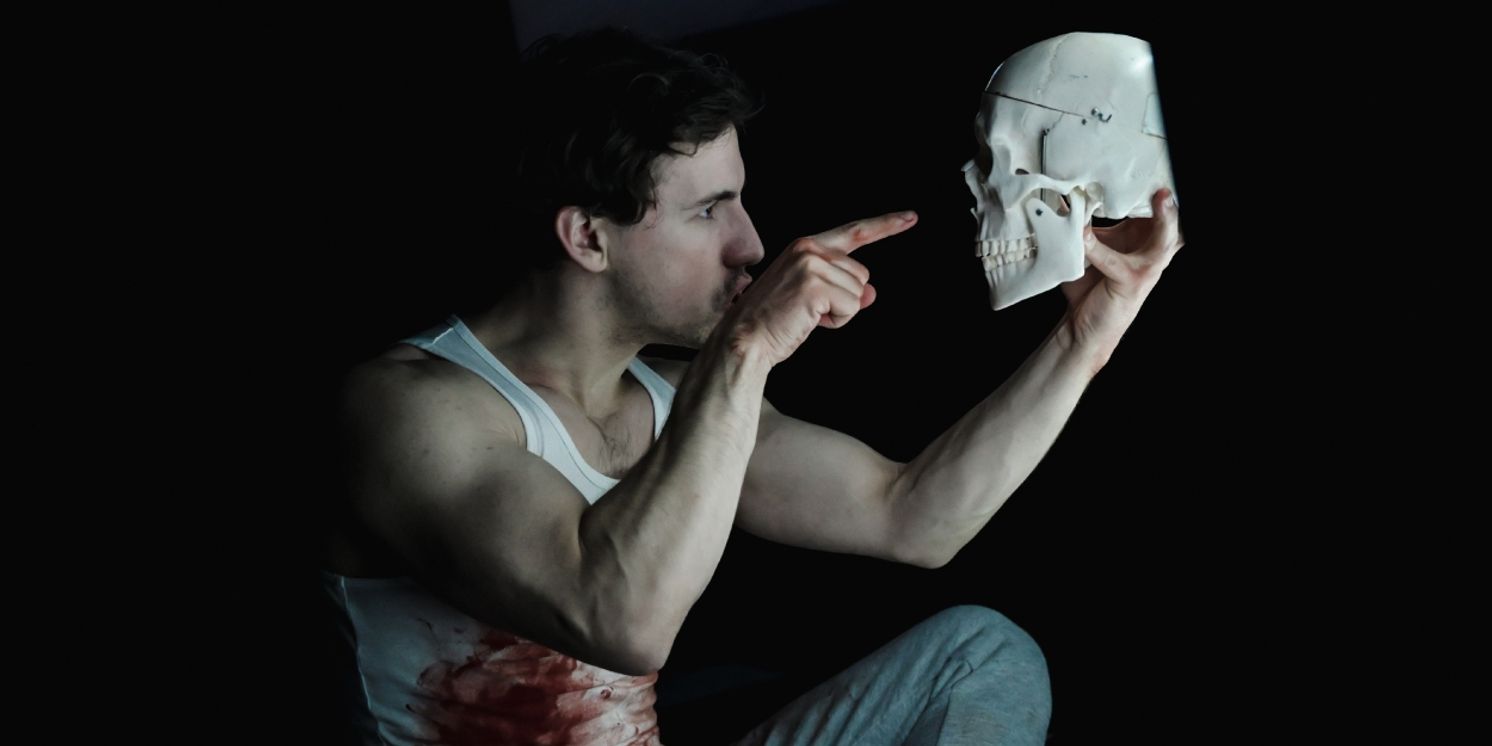Review: HAMLET, Southwark Playhouse
Too many cuts and an unstable premise lead to an episodic, wobbly take on Shakespeare's masterpiece.

![]()
Lazarus Theatre Company have been steadily making a name for themselves reimagining the classics. Most recently, they had an incredible run at Southwark Playhouse with a striking take on Marlowe's Doctor Faustus. They're now back to the theatre, in the larger space this time, with their own spin on Shakespeare's saddest of boys. Director Ricky Dukes refocuses the story on the younger characters, exploring their response to the personally catastrophic events in the play. Or so he says.
It's a show peppered with fun gimmicks and cool tricks, but it gives a skeletal, feeble, episodic result that completely removes Hamlet from his emotional context. He is a character defined by his relationships. If you isolate him from those vital influences, all that's left in a case like this is an arrogant, peevish youth. Dukes strips the piece down to its bare bones. He trims it to one hour and 40 minutes, removing all scenes that feature older people and delivering a production that's definitely not for the uninitiated.
The director frames the narrative as a sort of group therapy session. A voice thunders from above, ruling the uniformed patients (or are they inmates?) like figurines, at times giving the necessary background with lines from the absentees (it's never enough anyway). Each actor introduces themselves and their role, then speaks a line or two by (or about) whom they play. When it's Hamlet's turn, we jump straight into it.
Michael Hawkey attempts to redefine Hamlet's trauma but offers a narrow point of view instead, especially when it concerns the character's mental health. He stands between arrogance and self-pity in a shallow study of masculinity that tips into laddish cruelty and leaves out any deep rumination on his mortal coil. The absence of any other perspective minimises and reduces the impact of his suffering. He becomes more of a Henry V than a Hamlet and we end up disliking him rather than Claudius.
With Hamlet's being the only character who's truly fleshed out, we lose everything else. Lexine Lee is a subdued, distracted Ophelia while Sam Morris' Laertes is a forgettable presence. The latter has to specify that they share a father in Polonius, this elusive figure who's accidentally been murdered by the prince but whom we barely knew existed. Rosencranz (Amber Mendez-Martin) and Guildenstern (Raj Swamy) swoop on the scene in a lads-lads-lads moment, but they're swiftly discarded. Their betrayal adds to the tally of unexplored elements, as is Gertrude's, who is always mentioned in passing.
The whole thing is confusing and confused, but it still has its moments. Dukes adds the scent of incense during the chapel scene and, while fundamental because we otherwise wouldn't notice the scene change, it's a nice touch. Kalifa Taylor steals the show as the First Player: it's a tiny part in comparison, but she leaves a mark. The play-within-the-play strays from tradition: comically large paper ruffs and a commedia dell'arte vibe turn it into a farce. We follow Ophelia with a livestream into the guts of Southwark Playhouse, but her death is longer than Hamlet's. The political angle of the play is entirely discarded, so Fortinbras doesn't even get a nod.
It's a shame the concept fails to succeed. It's clear what Dukes wanted to do and, on paper, it's an innovative approach. Sadly, it agonises under all the cuts and lack of both empathy and depth. Sorcha Corcoran's set is a meta-theatrical dream, but when Jovana Backovic's sound comes in, it casually drowns out enunciations that are already subpar except for a few (Taylor's, to name one). You can barely hear Hamlet's shouty mumbles to the ghost of his father.
From the programme notes, we find out that the idea was born out of a drama class Dukes gave. He tailored the piece for young people, accidentally dumbing it down and making it more difficult to follow rather than shaping it to his needs. If there's something this production proves is that there's only so much you can cut before Hamlet loses its identity. In short, this play's not the thing.
Hamlet runs at Southwark Playhouse until 4 February.
Photo Credit: Charles Flint
Reader Reviews
Videos

